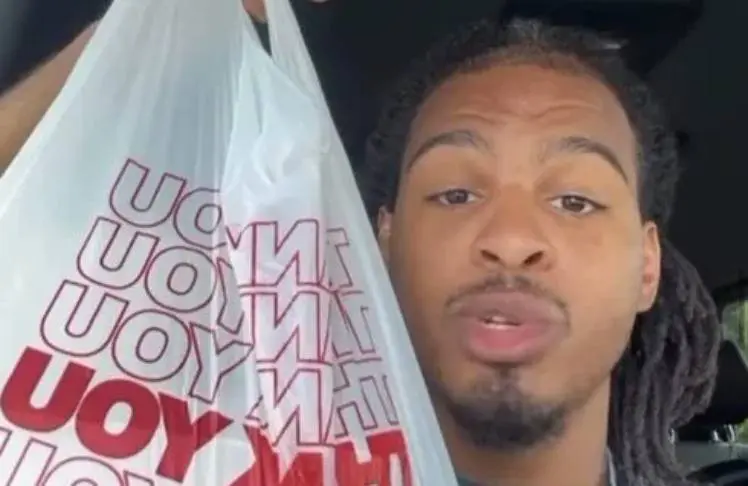
by Aziah Siid
Chef Gordon Ramsay is notorious for his harsh criticism of restaurateurs, and his “Hell’s Kitchen” reality show has put the turmoil of the restaurant industry on blast for more than a decade. But the omnipresence of Ramsay and other celebrity chefs and critics has left many diners with a burning question: Where are the Black food critics?
An occupation once reserved for newspaper columnists, seasoned chefs, or culinary school graduates is now open to anyone with a passion for sharing their love — or distaste in some cases — of food.
Now, Las Vegas-based food influencer Keith Lee is setting city food scenes ablaze as he shares his candid thoughts on tacos, pizza, cultural dishes, and more. But when it comes to reviewing Black-owned restaurants, critics of Lee say he’s publicly shaming — and potentially damaging the bottom line — of businesses that need the support of the community.
In a recent viral moment, Lee took to TikTok to share his thoughts on Atlanta’s popular restaurant, The Real Milk & Honey, leaving people either praising his mild-mannered delivery or throwing tomatoes for what they see as harsh criticism of a thriving, Black-owned eatery.
The review sparked a social media conversation around the lack of support for Black-owned businesses, the treatment of Black customers, and the quality of service at Black-owned restaurants.
Lee faced especially harsh backlash for sharing his experience at Real Housewives of Atlanta star Kandi Burress’ restaurant, Old Lady Gang. His family was told the wait to be seated was an hour to an hour and a half, but when Lee showed up, they were told they could be seated within five minutes. Instead. Lee chose to leave.
As always, I don’t want any special treatment. I wanna be treated like everybody else,” Lee said in a TikTok video that’s been viewed 2.4 million times. “I pay for my food like everybody else. I’m a normal person. I’m a normal customer. Things like this is exactly why I do reviews the way I do.”
Is Keith Lee’s Candor Helping or Harming Black Businesses?
Slutty Vegan CEO Aisha “Pinky” Cole is one entrepreneur who openly speaks on the difficulty and dedication it takes to not only run a restaurant as a Black woman, but also to build it into a multi-million dollar franchise.
At a recent festival in New York, Cole shared some of the comments people have made to her about her restaurant. “I hope you fail. I hope you get fired. I hope you lose all your money … These are all things that happened to me in real life, guys,” Cole said.
However, Lee prides himself on solely providing honest reviews about the food, leaving it up to consumers to decide if a restaurant is a good fit for them. And although a business may not always score a 10 out of 10 in his standards, his goal is never to put down restaurants, he said.
“It is hard to open a restaurant, it is hard to get the funding, it is hard to have people come in, I agree,” Lee said. “I’m blessed enough to be a marketing platform for those restaurants – completely free.”
Nationally, 41% of restaurants are owned by minorities, but only 9% of restaurants are Black-owned. In some states, like Colorado and Washington, only 2% of restaurants are Black-owned.
Even with a strong credit profile, Black entrepreneurs overall are about “half less likely than their white counterparts to secure full financing, “according to Bankrate. Black entrepreneurs are said to start their businesses with an average of $35,000 of capital, while white entrepreneurs start their businesses with an average of $107,000 of capital.
Part of Lee’s work is to use his platform to bridge the financial, racial, and socioeconomic divides many restaurants face.
“We’ve been blessed enough to raise $40,000 for a restaurant owner who has cancer. We’ve been blessed enough to be used as a vessel to retire a teacher in less than 24 hours,” Lee said. “We’ve been blessed enough to be a part of keeping multiple restaurants’ doors open, and all of this within the span of 10 months.”
A Higher Bar Set for Black Critics?
The underrepresentation of Black voices in the food industry raises similar concerns to those in education, fine arts, STEM, and countless other professions.
The conversation has left folks discussing the qualifications to be a critic, and how much of an impact self-proclaimed foodies should have.
Online users like former NFL wide receiver Chad “Ochocinco” Johnson took issue with Lee for criticizing Black-owned businesses, arguing his reviews add difficulty to an already tough task of ownership.
“I don’t like critiquing our restaurants,” Johnson said on a livestream with Shannon Sharpe. “You know how hard it is to even get into the food industry? To have our own restaurants?”
“I’ll be honest with you, I’ve been a professional fighter for almost 10 years. I’ve traveled the world eating food,” Lee said in response to Johnson and others’ criticism. “I’ve cut weight from anywhere from 170 pounds to 135 pounds, and food is one of the most important things when it comes to cutting weight.”
Lee’s humble response to criticism — and his track record of sending a sea of customers through restaurant doors — left many people cheering him and other Black food critics across platforms.
“Why do Black people feel like you can’t critique a Black owned business when you’re also Black?” One X (formerly Twitter) user wrote. “We should take subpar service in the name of ‘community’?”
“All this Keith Lee discourse is weird cause he trying to make sure customers get good service no matter who they are and y’all got an attitude about it,” another user wrote.
Rapper Cardi B agreed with Lee’s response, and said at time she has to use her stardom to get good service.
“I feel like Atlanta restaurants… They don’t like to make money. I feel like they don’t like people, they don’t like their customers,” she said. “What do you mean y’all nas are closed Monday through Wednesday? Or the















